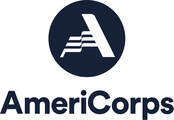government agencies, and nonprofit organizations as well as community volunteers and preservation enthusiasts. At the end of the meeting, interested individuals signed up to be a part of a Preservation Trades Task Force that will use action items identified during the meeting to direct our next steps.
The first set of questions discussed were - What historic trade is most in demand? What historic resources are suffering/or are we losing because we don’t have workers? What trades are we losing? From our discussions, we identified five historic trades that are in high demand in West Virginia, but that West Virginia is startlingly lacking in institutional/practical knowledge. These are:
There were also several comments about how it was difficult to find roofing companies to work on slate roofs and that deferred maintenance of smaller problems at our older buildings have led to more expensive repairs, total replacement of historic elements, and unfortunately in many cases, demolition by neglect - meaning that the building has been allowed to deteriorate to the point that demolition becomes necessary or restoration becomes unreasonable. The second set of questions were divided into two separate points. The first being - what are the challenges facing West Virginia’s historic resources in particular? The second question being - what unique opportunities do West Virginia’s historic resources present? Overall, the groups agreed that West Virginia is rich in cultural heritage resources in need of rehabilitation and prime for redevelopment, but we also agreed that retaining and attracting people to West Virginia to live and work in these buildings is one of the biggest challenges our historical towns and cities are facing. Those challenges are further complicated by economic challenges to fund historic preservation projects. Often, the price-tag of a historic structure seems prohibitive compared to the price tag of an entirely new building, and this is compounded by negative attitudes towards historic preservation being costly and complicated in West Virginia. There are also misconceptions that historic buildings cannot be rehabilitated because of hazardous materials such as asbestos or lead-based paint contamination. However, West Virginia has multiple initiatives, including grant funding from the West Virginia Brownfields Assistance Center, to help property owners understand the challenges related to mitigating hazardous materials in their historic buildings. There are also existing regional development agencies that target historic buildings for community-based revitalization projects, and provide support for dealing with these challenges. There is currently an obvious lack of knowledge in the fields of historic preservation trades in much of West Virginia. There is no central trade school or historic preservation technical program in West Virginia to educate our population in these skills, nor is historic preservation being taught at any vocational high school programs. Belmont Technical College is located very close to the northern panhandle of West Virginia in St. Clairsville, OH, and it offers a Building Preservation/Restoration degree program. The groups believe that we can capitalize on this institutional opportunity by encouraging individuals to attend the Belmont Technical College program and using it as a model to develop other preservation training programs in West Virginia. There is also a lack of access to the correct materials needed to rehabilitate many historic buildings or a lack of understanding of how to source materials locally. This lack of access and understanding threatens our infrastructure because construction professionals are trying to repair buildings using incorrect materials that can further degrade the historic structure. The final set of questions revolved around the theme of what can we do to encourage education in historic preservation trades? There is already a respect and value placed on trades skills in West Virginia that works in our favor. Our groups compiled a list of suggestions on the point of how to develop opportunities for people to pursue a preservation trades career. The Preservation Trades Task Force is exploring these suggestions, which included:
The Preservation Trades Task Force is already working on some of these action items and will be meeting monthly to discuss our projects. If you are interested in joining the Preservation Trades Task Force or for more information, contact PAWV executive director, Danielle Parker at [email protected].
3 Comments
Free Training: Preserving West Virginia River Heritage Through Adaptive Flood Risk Management2/25/2018 Through a generous sponsorship from BB&T Bank, PAWV and the National Trust for Historic Preservation have organized for the National Development Council to bring the first of its two-part Historic Real Estate Finance Professional Certification series to Fairmont – May 8 – 12, 2017.
Register at: https://nationaldevelopmentcouncil.asapconnected.com/classdetail.aspx?org=1364&pk=797371 Entitled HRE247, this five-day intensive course offers a step-by-step look at the real estate development process from the perspective of lenders, developers and investors. Through case studies taken from real projects, participants analyze real estate development projects—retail, office, residential, mixed-use—using the rates of return required by lenders, developers, and investors, and determine the appropriate amount of public sector financing needed to make projects feasible. Public sector financing tools and techniques (including Rehabilitation Tax Credits), which are designed to attract, leverage, and complement private financing, are utilized to maximize equity while minimizing the amount of public investment. Specific topics include:
The course will be May 8 – 12, 2017 at the Falcon Center on Fairmont State University’s campus. The cost of registration is $250.00. Contact PAWV at [email protected] for a special discount code. Register today at https://nationaldevelopmentcouncil.asapconnected.com/classdetail.aspx?org=1364&pk=797371 Lodging Options: Dormitory lodging on Fairmont State University campus is available for $11/night. There will be access to a bathroom and kitchenette. You will need to bring your own bedding, towels, and toiletriest. Contact Danielle LaPresta at dlapresta@pawv.org or by calling 304-345-6005 to secure this option by April 23. Local Hotels: Clarion Inn https://www.choicehotels.com/west-virginia/fairmont/clarion-hotels/wv102?hotel=WV102 Fairfield Inn http://www.marriott.com/hotels/travel/ckbfi-fairfield-inn-and-suites-fairmont/ Hampton Inn http://hamptoninn3.hilton.com/en/hotels/west-virginia/hampton-inn-fairmont-CKBFMHX/index.html Holiday Inn Express https://www.ihg.com/holidayinnexpress/hotels/us/en/fairmont/ckbfm/hoteldetail The Jefferson County Historic Landmarks Commission in cooperation with the West Virginia Division of Culture & History, National Association of Preservation Commissions,Charles Town Historic Landmarks Commission, Harpers Ferry Historic Landmarks Commission, Shepherdstown Historic Landmarks Commission will present a continuing education workshop on October 27, 2016 at the newly renovated Charles Washington Hall in Charles Town, WV.
The event is open to all Eastern Panhandle area Real Estate professionals who upon completion of the workshop will receive 3.5 hours of continuing education credits through the West Virginia Real Estate Commission. The focus of the program is to provide real estate professionals with background and information on the importance of historic preservation and guided resources on marketing and promoting historic structures and properties in the area. Registration for this event is free with complimentary refreshments and lunch provided. REGISTER at http://jeffersoncountyhlc.org/index.php/historic-preservation-for-eastern-panhandle-area-realty-professionals/ Where & When
Agenda
Featured Speakers: Robin Zeigler is the historic zoning administrator for the Metro Nashville Historic Zoning Commission. She was formerly senior historic preservation planner for the Planning Division of the Salt Lake City Corporation and the preservation planner for the City of Bowling Green in Kentucky. While in Kentucky, she served as the vice-chairperson of the state-wide non-profit, Preservation Kentucky and was an adjunct professor at Western Kentucky University. Currently she is a National Alliance of Preservation Commission’s trainer (Commissioner Assistance and Mentoring Program) and serves on the Training Committee. She is a past co-chair of the organization’s biennial conference and a former board member. She has presented the Historic Preservation 101 for Realtors in Tennessee, Kentucky, Alabama and West Virginia. Currently she serves as co-chair of the Urban Land Institute’s Programming Committee. She is a graduate of Middle Tennessee State University’s Public History Program where she worked for the Center for Historic Preservation and the Tennessee Civil War National Heritage Area. Jennifer Brennan serves as the Tax Credit Coordinator and as a Development Grant monitor with the West Virginia State Historic Preservation Office. In these roles, Ms. Brennan works with property owners who are interested in the rehabilitation of historic properties, often for investment purposes. Additionally, she works with private homeowners who are working on the rehabilitation of their private residence. In 2015, Ms. Brennan completed the National Development Council Historic Real Estate Training program, which focuses on the development process as it relates to structuring deals for the development of historic properties. Additionally, Ms. Brennan works as the Certified Local Government Coordinator, working with city and county governments on their historic preservation ordinances. Ms. Brennan received her Master’s degree in History with concentrations in Historic Preservation and Museum Studies from the University of North Carolina – Greensboro after completing undergraduate degrees in History and Historic Preservation at the College of Charleston in South Carolina. Contact the PAWV to take advantage of a special offer for a nonprofit fundraising workshop at the PAWV Conference. This offer is available to the first 4 nonprofits to register with dlapresta@pawv.org.
On Thursday, September 22, at the PAWV Conference in Beverly, PAWV will offer a full-day fundraising coaching workshop with consultant, Beth Raps. This workshop is outcome-focused: not just quick money (although that will be one result) but a loyal donor base ensuring long-lasting money for the long haul, mirroring the long-term nature of preservation. The workshop teaches how to ask for funds but doesn’t start there. It starts rather with what we already have: a strong feeling for “our” place. It teaches us how to use that to invite support year-round through a planned approach combining a variety of types of fundraising, from crowdfunding and memberships to events and large donor cultivation and solicitation, emphasizing the three Rs of long-lasting fund development: relationship-building, record-keeping, and recognition. For $200, your organization can send three participants to the workshop and have a 30-minute one-on-one coaching session with Beth Raps either Thursdayevening or Friday morning of the conference. It is recommended to send a team to this workshop and coaching session as you’ll be working on your own fundraising plan. This offer is available to the first 4 nonprofits to register with dlapresta@pawv.org. You can learn more about Beth and her business, RAISING CLARITY at http://www.raisingclarity.com/ To learn more about the conference and other available sessions, visit http://pawv.org/2016-conference.htm. This offer is first come, first serve. Tickets are on sale at the Eventbrite page: https://www.eventbrite.com/e/this-place-matters-connecting-with-historic-places-tickets-26139243180
PAWV is excited to announce three featured speakers for the up-coming historic preservation conference, “This Place Matters”. Tom Mayes (National Trust for Historic Preservation), Daniel Carey (Historic Savannah Foundation), and Dr. John Ochsendorf(Massachusetts Institute of Technology) will be the plenary and keynotes presenters over the three-day period. Each speaker will present on a different topic focused on why historic places are important and how to save them. Tom Mayes, the Vice President and Senior Counsel for the National Trust for Historic Preservation, will be the opening plenary speaker on Friday, September 23. He will speak immediately following lunch and will kick off the main educational concurrent sessions of the conference by presenting on “Why Old Places Matter”. Mr. Mayes will answer the questions: Why do old places matter? What difference does it make if we do – or do not – save old places? What difference does it make in people’s lives? He will explore some of the many reasons that old places matter to people, including Continuity, Memory, Individual and Civic Identity, Beauty, History, Architecture, Sacredness, Creativity, Sustainability, Community and Economics. Old places matter – perhaps for more reasons – and more fundamentally — than we think. Daniel Carey, the President & CEO of the Historic Savannah Foundation (HSF), will be the keynote speaker at the 8th Annual Historic Preservation Awards at Halliehurst Mansion in Elkins. Mr. Carey’s presentation is entitled “Secrets of Preserving a City” and will be based on his experiences with HSF over the last 7 years. He will convey the need for balance between tourism and preservation while touching upon the value of heritage tourism, the competitiveness of historic buildings in terms of energy efficiency, and collaborations HSF enjoys with non-traditional partners in Savannah – arguably the largest urban National Historic Landmark district in the United States. Dr. John Ochsendorf is Professor of Civil Engineering and Architecture at the Massachusetts Institute of Technology, where he directs a research program in historic masonry structures. Dr. Ochsendorf will be the keynote speaker for the luncheon on Saturday, September 24, to be held in Beverly’s historic I.O.O.F. building. His presentation is entitled “Preserving Historic Structures: Challenges and Opportunities” in which he will discuss how the preservation of the cultural heritage of West Virginia is vital for the future. Within his presentation he will explain how the field of preservation straddles the “two cultures” of the sciences and the humanities and therefore demands a deep engagement with both the technical and the cultural aspects of the built environment. We are very honored to have all three presenters speak at the conference this year. For more information about the conference, check out the event page: http://pawv.org/2016-conference.htm Plan your trip to the conference, September 22-24, 2016. Reserve your room in the conference room block at the Iron Road Inn – a locally-owned hotel in Elkins. The rate is $75.00/night+tax, and the room block is available beginning September 21 through September 23. Be sure to state you are with the group “Preservation Alliance of West Virginia.” The phone number for the Iron Road Inn is 304-637-1888. The website is ironroadinn.com This conference is being financed in part with Federal funds from the National Park Service, Department of the Interior. Regulations of the U.S. Department of the Interior strictly prohibit unlawful discrimination in departmental Federally Assisted Programs on the basis of race, color, national origin, age or handicap. Any person who believes he or she has been discriminated against in any program, activity, or facility operated by a recipient of Federal assistance should write to: Chief, Office of Equal Opportunity Programs United States Department of the Interior National Park Service 1201 Eye Street, NW (2740) Washington, DC 20005 The Preservation Alliance of West Virginia (PAWV) released its newest technical how-to video demonstrating a step-by-step guide in mothballing historic properties. Mothballing is the process of creating a ventilated envelope around a building to preserve the structure until it can be restored. This technique is frequently used for historic properties where funding is not available to immediately rehabilitate it. It is a valuable tool for dealing with vacant and dilapidated properties because it buys the owner time in protecting the building from vandals and weather until funds can be raised to rehabilitate it. This video includes a materials list and step-by-step instructions on how to build window and door panels that when applied, result in minimal damage to wood frames. It was developed according to the National Park Service’s standards listed in their Preservation Brief 31. The video is available on the Alliance’s YouTube channel at www.youtube.com/preservationalliance.
This video was produced using mini-grant funds from the WV Humanities Council. It was produced in partnership with Winding Gulf Restoration Organization (WeGROw) and Liberty High School’s Fine Arts Program. Liberty High School’s Fine Arts Program students were involved in every step of the creation of this video as part of a class project. Mr. Everett Jeremy Rodriguez and students Tyler Carden and Brian Jarrell filmed and edited this video as a volunteer project. The mothballing video builds upon another video released last year, entitled “Preserving and Restoring the Helen Apartments.” This video will also supplement past Preservation Alliance videos, including videos on how to rehabilitate your historic wooden windows and how to assess your historic structure. For assistance in mothballing your historic property, contact Lynn Stasick at [email protected]. This is a reminder that proposals for the PAWV 2016 Conference are due April 25. Here is the full request for proposals.
Preservation Alliance of West Virginia is currently accepting proposals for its next statewide historic preservation conference, scheduled for September 22-24, 2016. It will be held primarily in Beverly, with some opportunity for programming in the immediate Randolph County vicinity (Elkins, etc.). This year’s conference theme will be This Place Matters: Connecting with Historic Places. Conference proposals should relate to the theme and fit into at least one of three tracks:
This is a request for knowledgeable professionals willing to lead one or more of the following: Keynote speeches Plenary speeches Half- or full-day workshops Educational walking or driving tours Educational sessions Round-table discussions Panel presentations Student/AmeriCorps poster session For more information on each of these positions, necessary qualifications, and applications, please see the guidelines below. Here is a downloadable version of the PAWV conference RFP 2016 Submit proposals via email to [email protected] by April 25, 2016. For more information, please contact PAWV’s Executive Director, Danielle LaPresta Parker, at [email protected] or 304-345-6005. This RFP does not indicate any promise to follow through and implement any proposals. We reserve the right to select different trainers for workshops, sessions, etc. We reserve the right to accept late proposals if insufficient or inadequate proposals for all slots are not received by the deadline. We may suggest revisions to your proposals for your consideration. PAWV staff will organize and direct all events and will have final approval of content. This conference will be funded in part with federal funds from the National Park Service, Department of the Interior and the WV Division of Culture & History, State Historic Preservation Office. Regulations of the U.S. Department of the Interior strictly prohibit unlawful discrimination in departmental Federally Assisted Programs on the basis of race, color, national origin, age or handicap. Any person who believes he or she has been discriminated against in any program, activity, or facility operated by a recipient of Federal assistance should write to: Office of Equal Opportunity, National Park Service, 1201 Eye Street, NW (2740), Washington, DC 20005. Proposal Application Requirements: Professionals interested in providing preservation training for any of the above formats — speeches, workshops, keynote speakers, educational sessions, roundtables, panel discussions, poster sessions, and/or educational tours — should submit a proposal including:
Presenters will be offered free admission to the conference for the day (excluding banquet) of their presentation, plus the volunteer-discount rate to attend the rest of the conference. Presenter fees, when paid, will be negotiated on a case by case basis. Presenter fees may be offered to major speakers, with smaller amounts offered to panel participants and additional presenters if funds are available. No separate travel expenses will be paid. Positions Available: Plenary and keynote speakers We are seeking one plenary speaker and two keynote speakers for the following: A 15-30 minute plenary speech on local history or preservation – or on one of the conference themes/tracks – for an opening session directly following Friday’s lunch; A 30-45 minute keynote speech related to the conference theme or one of the conference theme/tracks for the awards banquet on Friday evening; A 30-45 minute keynote speech related to the conference theme or one of the conference theme/tracks for the luncheon on Saturday afternoon. Workshop leader Trades workshops are best held at a historic property, with hands-on work performed on the property as part of the workshop. Some workshops may include a classroom component or may be intensive training on a focused topic. Occasionally, other formats – such as a longer training period, or combining multiple skills in one workshop – may be offered. These workshops can be either a half or a full day. Trainers should have extensive experience in the specific skill, thorough familiarity with historic preservation issues regarding that skill, and experience in teaching the skill. Trainers are encouraged to bring additional hand tools for students’ use for hands-on practice. Seminar, panel, or round-table type workshops related to one of the tracks could also be considered for workshop topics or presentations more appropriate to a longer format than the 75 minute educational sessions. Educational speakers Educational speakers will lead 75 minute sessions related to one of the tracks. Each session will most likely be held in an educational breakout room at a specific site. Conference participants will have the option of attending various sessions throughout the three-day period. Speakers should have extensive experience in the specific topic, thorough familiarity with historic preservation issues regarding that topic, and/or experience in teaching the topic. Round-table leaders The round-table discussions, which should be related to one of the tracks, will be 75 minutes long and will be located in a specific educational breakout room. Leaders of round-table discussions must have widespread knowledge and experience working with the specific topic. Leaders will be available to discuss and answer questions asked by conference participants regarding the discussion topic, as well as to encourage constructive input and sharing of experiences by the participants. Panel presenters and moderators The leaders/moderators of panels related to one of the tracks will assemble 2 or 3 panel presenters to each give a short presentation related to the same theme, followed by discussion led by the moderator. The names, contact information, and qualifications of each panel participant should be included in the proposal. Panels last 75 minutes and will be held in a specific educational breakout room. Tour guides (walking or driving) Walking tours generally run from 1 ½ to 3 hours. Driving tours may be a half-day or longer. Guides must have pervasive knowledge of the historic structures and properties described on the tour. PAWV requests that tour guides be knowledgeable not only in the historic uses of the buildings, but also in the methods, strategies, and/or technologies used during the preservation, adaptive reuse, etc., of the structures/sites. The primary focus of the tour should be related to historic preservation, the conference theme, and/or one of the conference tracks; however, PAWV encourages tours to also share aspects of local history. Poster session The poster session will include the presentation of research or a historic preservation project by an individual (typically a student or AmeriCorps member) or by representatives of a project team. Posters will be displayed in an exhibitor hall, and presenters will accompany their posters – illustrating their research methods or project scope and outcomes. The posters will be displayed during the entire conference, but the poster presentation session will be held over a period of one hour on Friday or Saturday of the conference. Three Conference Tracks: Conference attendees can choose to attend workshops and educational sessions related to three conference tracks, which focus on specific themes common in historic preservation projects and development. By featuring three different tracks, conference attendees can choose the topic that best reflects their interests and gain the most from their experience. Attendees will have the choice of Thursday workshops and tours reflective of track themes, as well as Friday and Saturday concurrent educational sessions. Proposals should be related to one of the following tracks.
|
News and NotesCategories
All
Archives
May 2024
Subscribe to our mailing list to receive e-news updates on historic preservation news and events in West Virginia.
|
Get Involved |
Programs |
Contact UsPreservation Alliance of West Virginia
421 Davis Avenue, #4 | Elkins, WV 26241 Email: [email protected] Phone: 304-345-6005 |
Organizational Partners:
© COPYRIGHT 2022 - PRESERVATION ALLIANCE OF WEST VIRGINIA. ALL RIGHTS RESERVED.

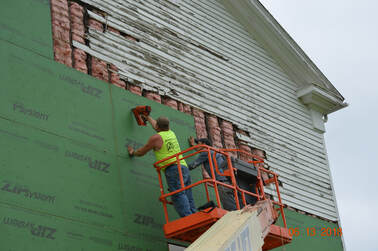
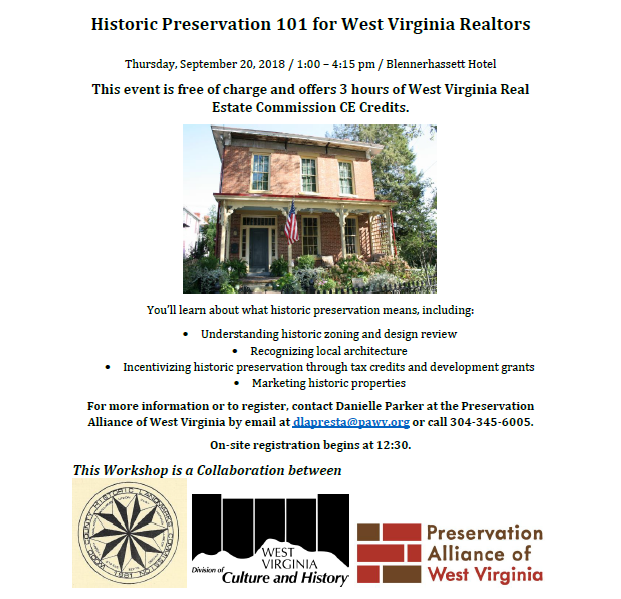
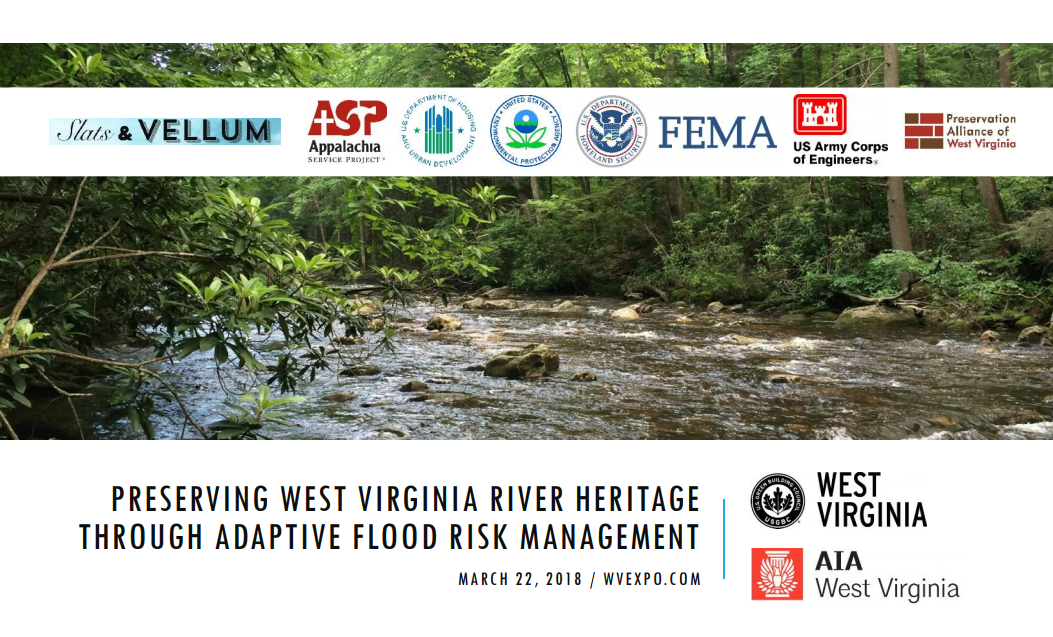
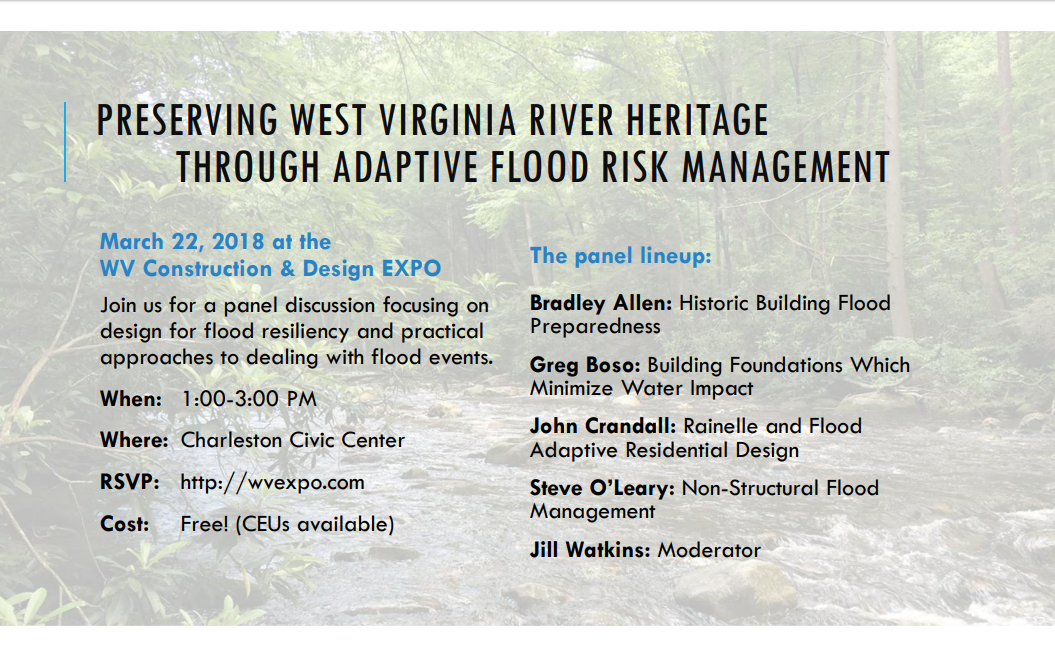
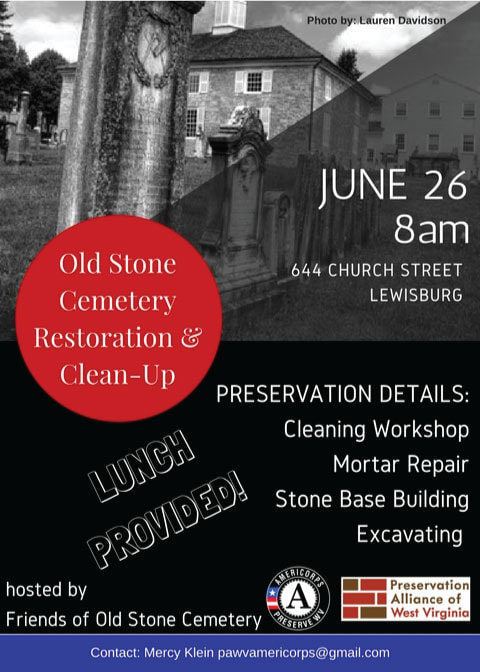
 RSS Feed
RSS Feed

